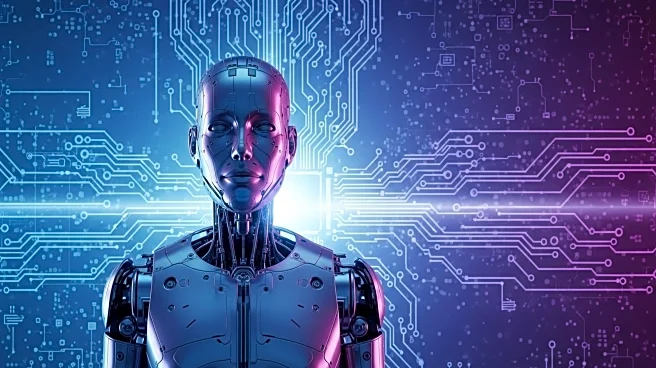What is the story about?
What's Happening?
The release of OpenAI's GPT-5 has reignited discussions on AI personhood, as users express emotional connections to AI companions. The increasing humanization of AI raises questions about the legal and ethical implications of digital minds. Surveys indicate a growing public expectation of sentient AI, with significant support for banning or granting legal rights to such entities. The lack of a framework for digital personhood highlights the need for societal and legal adaptation to the evolving role of AI.
Why It's Important?
The debate on AI personhood reflects broader societal concerns about the impact of AI on human relationships and legal systems. As AI technologies become more integrated into daily life, the potential for emotional and psychological effects on users increases. Addressing these issues is crucial to ensuring that AI development aligns with ethical standards and societal values. The discussion also underscores the need for legal frameworks that recognize the unique nature of digital entities.
What's Next?
Policymakers and researchers must engage in discussions on the implications of AI personhood and develop guidelines for the ethical treatment of digital minds. As AI technologies continue to advance, the need for comprehensive legal and ethical frameworks will become increasingly urgent. Ongoing research and public dialogue will be essential to navigating the complex social dynamics introduced by AI.















